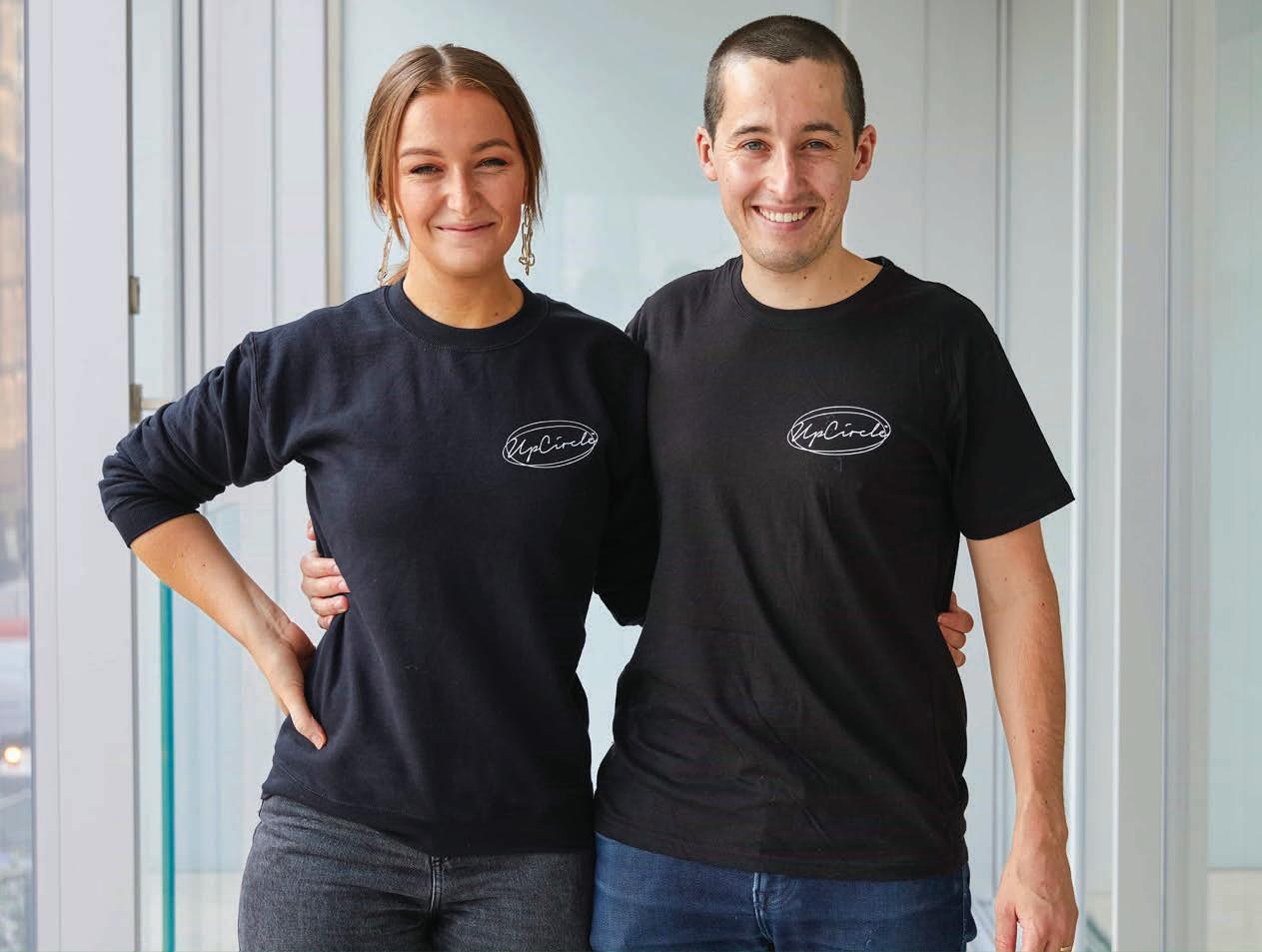
7 minute read
ONES TO WATCH
ANNA AND WILL
The only way IS UP
University of York alumni and ethical skincare pioneer Anna Brightman describes her journey to becoming one of the UK’s top 100 entrepreneurs under 30
By REBECCA PITCAIRN
ANNA BRIGHTMAN
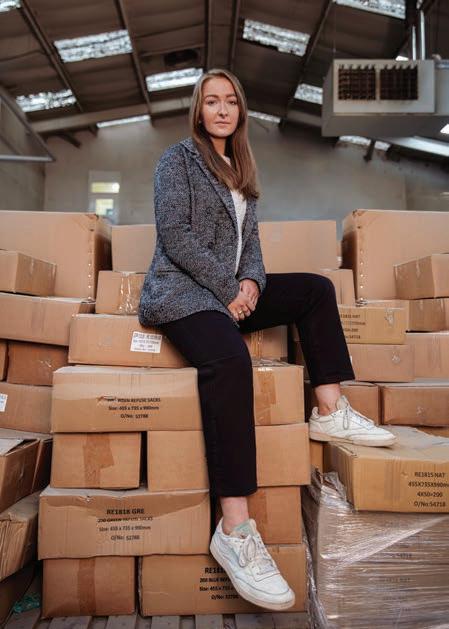
When Anna Brightman was a student living in York, making her own skincare because it was cheaper than buying expensive brands, little did she know that less than a decade later she’d be running a £1 million beauty business.
Anna was just 23 when she launched UpCircle, now the UK's number one upcycled beauty brand, together with her brother, Will, after they discovered that more than 500,000 tonnes of co ee grounds consumed each year in the UK are sent to landfill.
“Will and I were both at the beginning of a fairly corporate career path and were quickly identifying that, despite the fact it could be an easy life with a regular pay check, we didn’t feel good when we came home at the end of the day. We began looking for inspiration for an ethical business we could start together, where we could try and make a positive impact on the world,” explains Anna, who at the time was an area manager for Aldi, while her brother was working in finance in Canary Wharf. “Will used to visit a co ee shop on his way into work each day and became curious as to what happens to the contents of each of the metal pucks of co ee grounds once the co ee was made. He asked the barrister and the answer was that they’re thrown away.”
The pair were astonished that this seemingly innocent, organic natural ingredient could have such a negative environmental impact and also a financial cost to the co ee shops for refuse collection. Having been interested in beauty since childhood, Anna was aware of the skincare benefits of co ee and so they started collecting co ee from cafes across London and transforming them into skincare products.
“It was one of those penny-drop moments, which seemed like a win-win. We get an ingredient, we’re saving an ingredient from going to landfill and the business we’re taking the ingredient from is saving the cost of having it disposed,” says Anna.
The siblings both quit their jobs and launched their company, initially under the brand name Optiat, in September 2016, raising funds for their first product, a co ee face scrub, through the Virgin Start Up Scheme. However, 18 months in they successfully crowdfunded £200,000 for a rebrand. It was around this time that they were also given the opportunity to appear on BBC TV show Dragons’ Den.
“It’s very di erent to what you see on TV,” says Anna. “For starters, it was lengthy, we were in there for three hours, and it was a really in-depth interrogation. The main thing I took away from the experience was the brutal honesty that they give you, which is very di cult to get when you’re a family-run business because everyone just wants to support you and be nice. But it also brought us new ideas and a lot of inspiration for things we wanted to do with the brand.”
After receiving o ers of investment from three of the dragons, they shook hands on a deal with Touker Suleyman and Tej Lalvani, however away from the cameras the pair decided not to go ahead with the deal. “It was a really interesting time to go on because, behind the scenes, we were about six months into the rebrand, but we weren’t allowed to talk about it and could only pitch the original brand,” Anna explains. “After a couple of months negotiating we decided the o er wasn’t right, but the experience itself was fantastic for showing us that the decisions we were making on the rebrand were the right ones.”
The show also gave them great exposure, but the real turning point for the company, now named UpCircle, came a couple of years later during lockdown when interest in at-home skincare sky-rocketed.
“Our orders started flying through the roof and we had to very quickly react to that,” says Anna. “And for a circular economy brand like ours, supply chain issues were even more complex. The co ee that we get for our products comes from businesses that ceased to function during Covid and 60% of the co ee shops we collected from closed permanently. So, we had to think outside the box.”
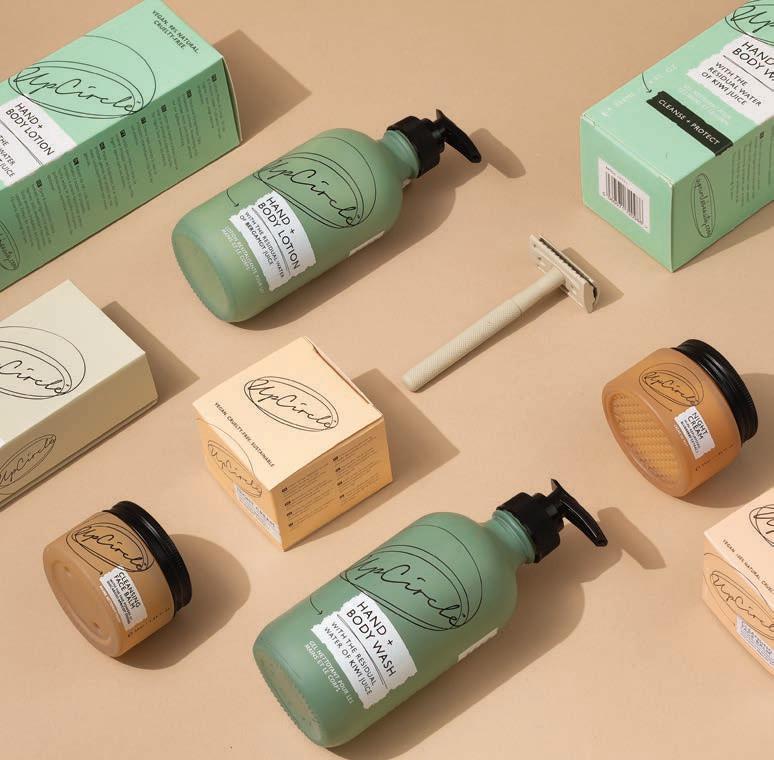
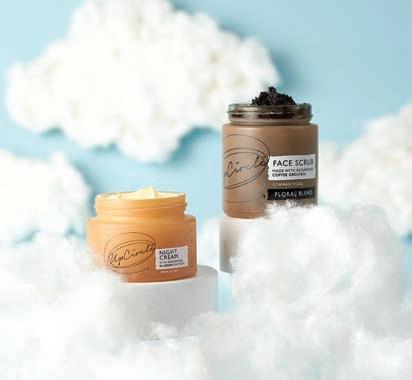
COLLECTING COFFEE TO REUSE
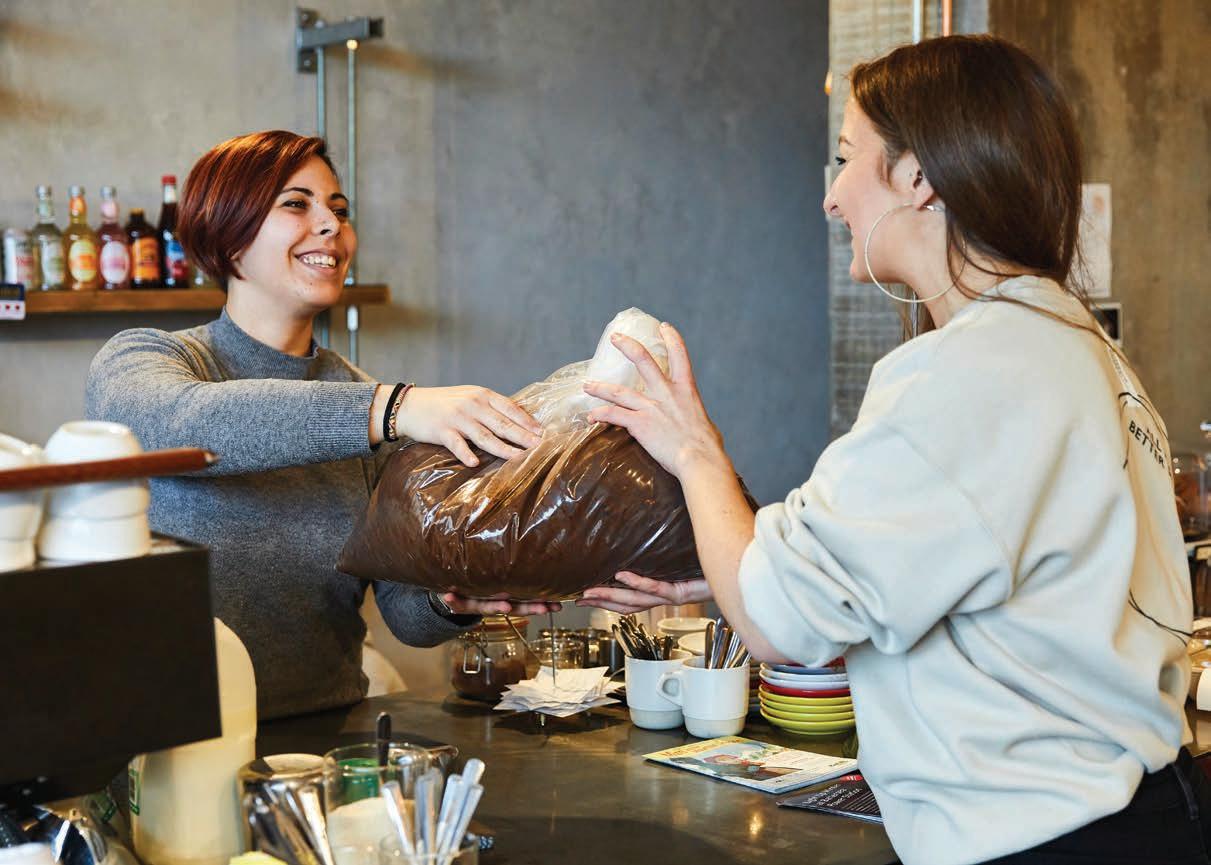
While they were already looking at other throwaway ingredients to upcycle into beauty products, the challenges of the pandemic forced them to work harder and faster – they quickly put hand wash to the top of their product development pipeline and built charitable donations into every sale.
Their portfolio has since grown to over 20 di erent by-products, such as raspberry seeds, rose petals, hibiscus acids and oat powder all being rescued for their products. The company is currently working on replacing purified water in its products with fruit waters upcycled from the juicing industry and is launching a shampoo paste, which requires 50% less water.
It has also extended its circular approach to packaging, refilling 20,000 pieces of packaging via its “Return, Refill, Reuse” scheme.
“We’re averaging seven or eight new launches per year and we’re quite restlessly determined to stay ahead of the game,” explains Anna. “Yes, co ee is the story that grabbed everyone’s attention, but whilst that might be what we’re best known for, the bestsellers are the cleansing balm, which has powdered apricot stones, and the facemask made from powdered argan shells, which are a bi-product of making argan oil.”
Now stocked in over 40 countries and with annual sales of more than £1 million, UpCircle had to move o ce twice last year to accommodate its rapidly growing team. Anna and Will were also recently named on the Hurun UK Under 30s List, which recognises the top 100 British entrepreneurs under the age of 30 who are paving the way for the future of the UK economy.
There’s no doubt UpCircle is one of the true success stories of today’s circular economy, but I wonder if sibling rivalry or squabbles ever get in the way of business. “I would be absolutely lying if I said it hasn’t been di cult, but I think what makes it work for us is that we couldn’t be more di erent,” she laughs. “He is the one who is the nuts and bolts, is always behind a computer screen and entirely back of house. Whereas I manage all the front of house stu and give the brand a more human feel. Therefore, we never step on each other’s toes. We have complete trust in one another plus we can ask a lot of each other and not feel bad about it, whereas if you were working alongside a friend you can imagine that could cause tension. I think that is what has helped us grow so quickly.
“Our story has also helped us too because it’s a good one, but I think our secret is that our products perform and that has to come first. You can have the best story in the world, but that doesn’t mean a thing if the product doesn’t stack up.”
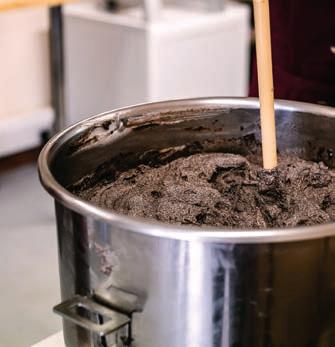
SEVEN UP
The other savvy young businesspeople from Yorkshire who made it on to the inaugural Hurun Research Institute 100 young British entrepreneurs under 30 list
James Barthorpe from Sheffield set up Food Circle Supermarket, which buys excess stock from manufacturers that would otherwise be wasted and sells it on to customers. Together with co-founder, Paul Simpson, he has grown the business’s annual turnover to £1.5 million within three years. •
Elizabeth Gilligan from Middlesbrough harnesses AI to make concrete manufacturing more environmentally friendly through her company Material Evolution. Elizabeth founded the Teesside-based business, which secured £2.5 million of investment, in late 2021.
Sisters Georgina and Olivia Kerr fromLeeds are founders of Stinky Stuff, which sells natural remedies for dogs, horses and other animals and generated £3.1 million sales in 2019-20. •
Fellow Durham University students, Peter Kirby and Will Smith, both also from Leeds, have raised £1 million of funding for green debit card Tred – valuing the business at around £6m. The Tred card is made of recycled plastic and enables users to track, cut and offset their carbon footprint as they spend. •
Carrie Rose from Sheffield started digital marketing agency Rise at Seven in 2019. Over the first two years she attracted 65 clients, including Boohoo and Xbox, and the business’s annual turnover already exceeds £4 million.










